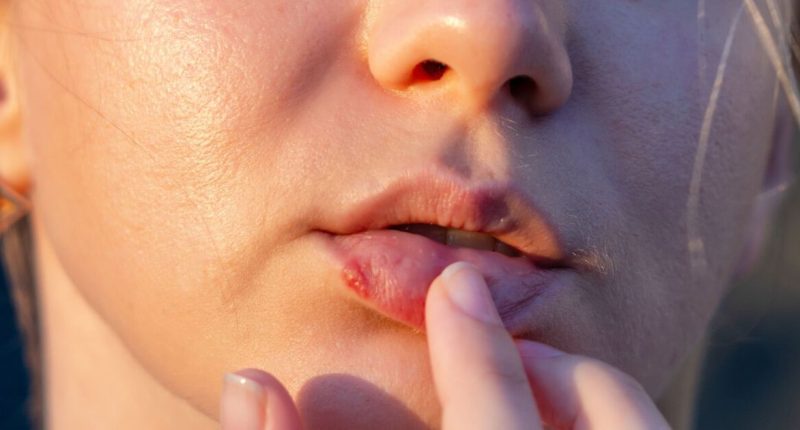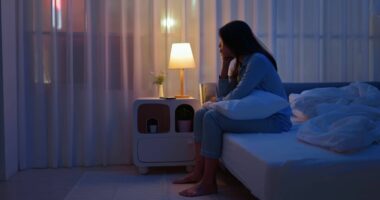Share this @internewscast.com
People who suffer from cold sores may be almost twice as likely to develop Alzheimer’s disease, a study suggests. US researchers found people who carried the herpes simplex virus type 1 (HSV-1) were 80% more likely to be affected by the brain-wasting condition.
However, those treated with antiviral medicines had a 17% lower risk than those who were not. The virus has been found to cause changes that resemble those in the brains of dementia patients, such as amyloid plaque-like formations and inflammation.
The study, by researchers from pharmaceutical firm Gilead Sciences and the University of Washington in Seattle, used data from more than 344,000 people with Alzheimer’s, who were compared with the same number of people without the disease.
A history of HSV-1 diagnosis was noted for 1,507 (0.44%) patients with Alzheimer’s, compared with 823 (0.24%) of those without. The findings were published in the journal BMJ Open.
Professor Tara Spires-Jones, from the University of Edinburgh, said the research added to “strong data” linking the cold sore virus to an increased risk of Alzheimer’s.
She added: “It is important to note that HSV-1 infection, which is extremely common in the population, is by no means a guarantee that someone will develop Alzheimer’s.
“Why viral infections may increase risk of dementia is not fully understood, but the most likely explanation is that infections increase inflammation in the body and contribute to age-related brain inflammation.”
Dr Sheona Scales, director of research at Alzheimer’s Research UK, warned the study had some limitations and there was not yet enough evidence to add infections to the list of 14 established risk factors for dementia.
She said: “Despite the large sample size, this research has limitations partly due to only using health records and administrative claims data.
“Most people infected with HSV-1 don’t have any symptoms so some infections might not have been recorded. Infections predating the information recorded are also not available.
“Although cases were matched with controls, diagnosing Alzheimer’s disease, especially in the early stages, remains a challenge.”











